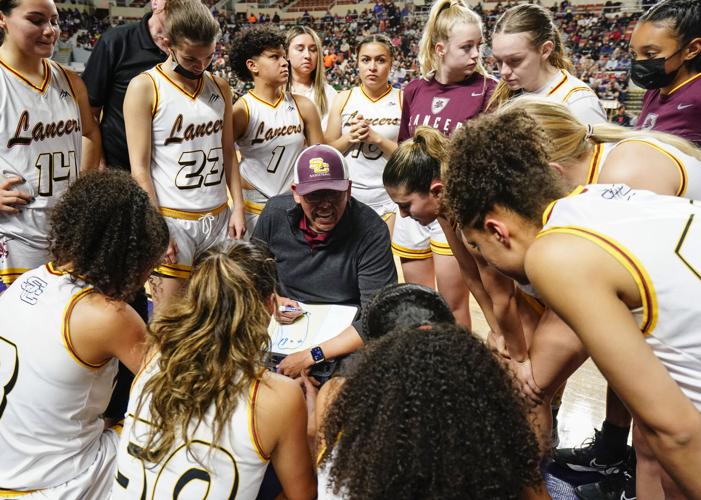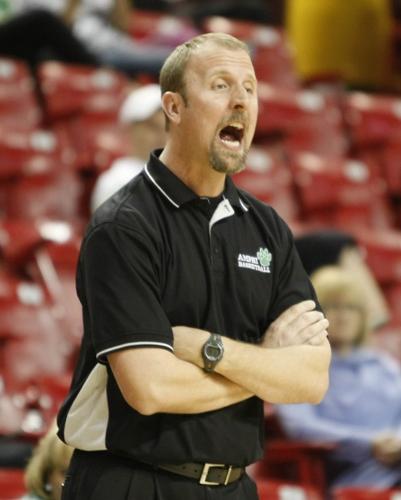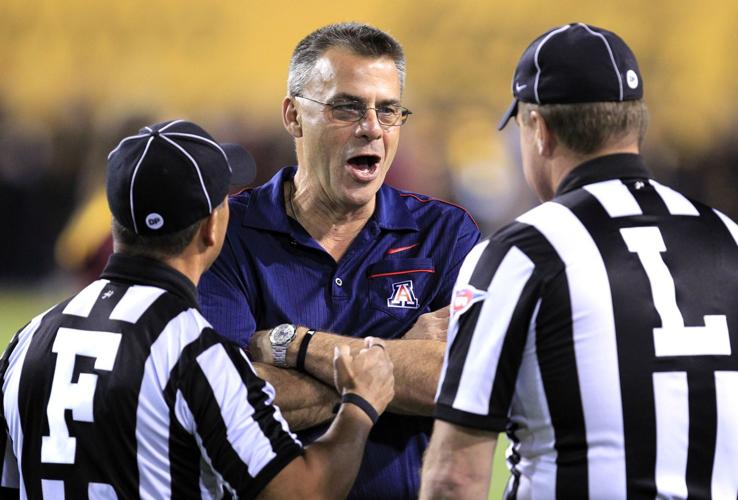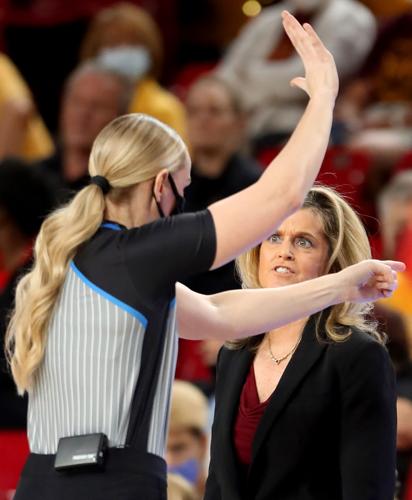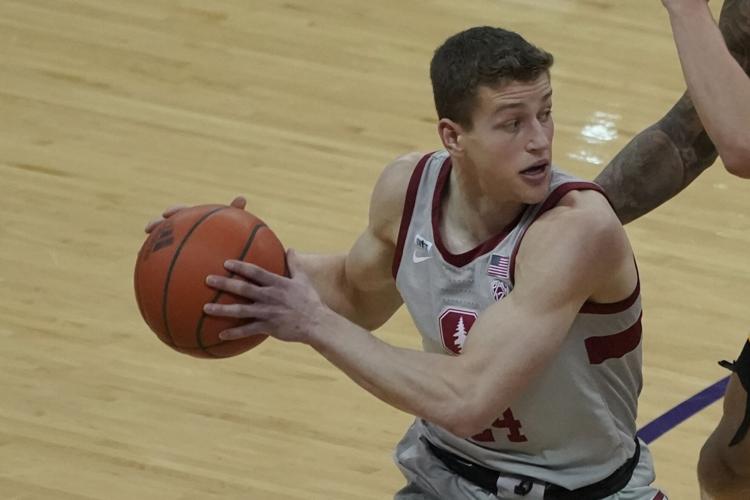The Star's Greg Hansen checks on why the Pac-12's inaction may hurt the Wildcats in the NCAA Women's Basketball Tournament, why Salpointe Catholic's girls basketball program has broken through, and a look at how few locals have played for the Wildcats:
Pac-12's failures could cost Cats in NCAA Tournament
The Pac-12’s failure to facilitate its women’s basketball teams to make up COVID-19 related postponed games could be the deciding factor in whether Arizona plays host to the first weekend of the NCAA Tournament.
Adia Barnes’ team did not make up games against bottom-feeders Cal and Washington, which would’ve added to the UA’s résumé in becoming a No. 4 seed and playing two games at McKale Center.
That’s a bad look for the Pac-12 administration for two reasons: (1), every Pac-12 men’s team made up all postponed games and played full 20-game schedules, but 16 women’s games were not played; and (2), Iowa is one of three Big Ten teams (with Michigan and Indiana) on the bubble for a No. 4 seed according to updated NET ratings through Friday. Yet the Big Ten assisted the Hawkeyes in making up postponed games with Penn State, Illinois and Indiana. Iowa won all three. Big factor.
Arizona failed to help its cause by shooting poorly in late-season losses to Colorado, UCLA, WSU and ASU. The loss of injured All-Pac-12 forward Cate Reese contributed to three of those losses. But Arizona’s body of work still puts it in play for a No. 4 seed with Iowa, Tennessee, LSU, Michigan, Maryland, Indiana and especially Oregon.
The 19-11 Ducks lost Friday to Utah in the Pac-12 semifinals and are the only team contending for a No. 4 seed not to win 20 games. (On its webpage, Oregon counts a forfeit, a COVID-19 related postponement against UCLA as a victory; neither the Pac-12 nor the NCAA recognizes that game).
What’s more, Oregon went 4-4 in its last eight games. Body of work? Oregon lost to UC Davis, South Florida and Kansas State. Not good.
After Friday’s games, the NET rankings were: 12, Oregon; 13, Maryland; 14, Tennessee; 15, Michigan; 16, Iowa; 17, Indiana; 18, Arizona.
Getting a No. 4 seed is paramount in becoming a first-weekend host. Only twice in the last five seasons has a team seeded below No. 4 hosted first-weekend games: No. 7 seed Kansas State was a host in 2017 when No. 2 Stanford did not bid to be a host. In 2016, No. 5 seed Mississippi State became a host when No. 4 seed Michigan State did not bid.
Attendance and the potential for strong revenue generation plays a role in assigning first-weekend host spots. But most of those on the No, 4 bubble with Arizona all have similar season attendance averages. Arizona averaged 7,648; Oregon was at 7,751; Iowa was at 7,403 and LSU 7,061. The only challengers for a No. 4 seed with notably lower attendance are Maryland at 5,138; Indiana at 4,257; and Michigan at 3,341.
Either way, Barnes is not going to be idle while waiting to learn if Arizona stays home with a No. 4 seed or travels as a No. 5 seed. She departed on a recruiting trip to New York and the East Coast early Saturday morning. Arizona’s losses to Colorado and UCLA exposed the club’s weaknesses, especially scoring and perimeter shooting. The UA finished No. 112 in NCAA scoring at 67 points a game.
That didn’t get it done this year and it won’t get it done in the future.

Salpointe Catholic girls basketball coach Joseph Luevano calls a play late in Monday’s Class 4A state championship win.
Lancers break through in girls hoops
For more than 40 years, Salpointe Catholic High School could not quite break through and win a state championship in girls basketball. The Lancers won state titles in 17 other sports over that period — more sports than any other Tucson high school — but not in girls basketball, boys volleyball nor wrestling.
That all changed last week, when second-year coach Joe Luevano led the Lancers to the Class 4A championship, ending a streak that 12 Salpointe girls basketball coaching predecessors could not.
Salpointe almost seemed cursed in women’s hoops. In 2003, coach Pete Fajardo coached what was probably the school’s most potent girls basketball team ever to a 31-1 record and the state finals. That team, led by center Sybil Dosty, Tucson’s most highly-recruited girls basketball player of the last 25 years, then ran into 34-0 Gilbert Highland and lost the title game at the buzzer.
To his credit, Luevano — whose full-time job is as an orthopedic technician at a Children’s Adaptive Recreation Center — kept the Lancers sharp and on their game during a historic period as Tucson prep sports continue to diminish in participatory numbers and competitive balance.
Salpointe outscored opponents 1,749 to 869. It went 13-0 against Tucson opponents, winning by margins of 77, 60, 57, 56,55 and 53 points. The Lancers even routed once-powerful girls basketball programs such as Catalina Foothills 88-33, Canyon del Oro 74-21 and Mountain View 74-18.
Salpointe did not play a single-digits game against any Arizona team, winning state semifinal and final games by 13 and 17 points. Its four losses came in winter tournament events against opponents from Tennessee, Alaska and California.
Perhaps, like prep football in Arizona, this will someday lead to an Open Division for the state’s elite girls basketball programs. It isn’t 1995 any more.

Amphi head coach Ben Hurley yells out instruction from the bench during action against Sierra Linda in the boy's Division II state quarter-final basketball game at Wells Fargo Arena in Tempe on Wednesday, Feb. 22, 2012.
Ben Hurley ends successful run at Amphi
From 2009-12, Amphi High School was Tucson’s ranking boys prep basketball power. Even with a limited and declining enrollment similar to that of Amphi’s long-proud football history under Vern Friedli, coach Ben Hurley and the Panthers were a powerhouse like few in Tucson history.
Amphi went 114-16 over that four-year period, led by future EuroLeague pros Tim Derksen and Lester Medford, winning the 2011 state championship and finishing second in both 2010 and 2012.
Much to his credit, Hurley stuck with it after Derksen and Medford and their teammates graduated. Hurley proved it wasn’t all about winning, but about being a mentor and role model. Even though Amphi had seasons of 4-22, 8-19 and 6-19, Hurley stuck it out.
Last week, Hurley announced he will leave his coaching position at Amphi and remain on the faculty in his role in the physical education department. Hurley has been at Amphi since 1996, getting into coaching with long-time Amphi head coach Pat Derksen more than 20 years ago.
Overall, Hurley won 222 games at Amphi. His was a coaching career well done.
Will Kreamer back in coaching
Will Kreamer’s football odyssey is one for the books: He was a starting lineman on Ollie Mayfield’s historic back-to-back Tucson High state championship teams of 1970 and 1971, and later the head coach at Sahuaro, Santa Rita and Tucson High, winning 56 games. He became an athletic director at Sabino, Tucson and Ironwood Ridge high schools and somehow found time to be a head coach in the Italian pro football league. Last week, Kreamer returned to coaching. He will be an assistant coach under new Ironwood Ridge coach Dale Stott. There’s a ton of history involved in that reunion. Stott is an Amphi grad, part of the Panthers; 1975 state championship team, a team that produced starting Arizona QB Jim Krohn. While graduating from the UA medical school, Stott became an assistant under Kreamer in the mid 1980s at Santa Rita. Stott recently moved his medical practice from St., George, Utah, to Tucson, to be close to family. It would be encouraging to see Stott and Kreamer rebuild Ironwood Ridge to state power status; under Gary Minor and Matt Johnson, the Nighthawks went 103-41 during the school’s first 12 years, winning the 2013 state title.
Cochise's Jerry Carrillo gets win No. 600
Cochise College men’s basketball coach Jerry Carrillo, a Salpointe Catholic High School and UA grad, coached the Apaches to the Region 1 championship last week, which was also his 600th career victory at Cochise. That’s more than any men’s basketball coach in ACCAC history. Carrillo’s path to that type of profound success began modestly. Carrillo remembers win No. 1 27 years later. “In November 1995, we beat a Davis-Monthan Air Force Base team led by former Arizona Wildcat star Herman Harris. He scored 40 points but we beat them.”

Arizona interim head coach Tim Kish, center, talks with officials prior to what wound up being a 34-31 UA win over rival ASU on Nov. 19, 2011, in Tempe.
Ex-UA coach Tim Kish takes on key role
Good news for the Southern Arizona Chapter of the National Football Foundation and College Hall of Fame. Tim Kish, former Arizona defensive coordinator and interim head coach (2011) is the new president of the chapter’s organizing committee, the same group that processed the successful Hall of Fame nominations of Tedy Bruschi, Chuck Cecil and Rob Waldrop. Kish steps into a position steeped with success and history; the Southern Arizona chapter has been led by, among others, Mike Lude, Joe Kearney, Ted Schmidt, Ed Ackerley, Nemer Hassey and Rick Gonzales, all of whom made it an effective and productive part of the Hall of Fame system. After Kish left Arizona in 2011, he became Oklahoma’s linebackers coach from 2012-18 before retiring to Tucson.

Arizona State coach Charli Turner Thorne argues her case following a technical foul call in last month’s game against Arizona. She announced Thursday that she will be retiring from the Sun Devils after 25 seasons.
Charli Turner Thorne leaves legacy at ASU
When ASU’s 25-year women’s basketball coach Charli Turner Thorne retired last week, it wasn’t all about the wins and losses. She has been the leading head coach at ASU over the last quarter-century, any sport, reaching two Elite Eights and winning more games than any women’s basketball coach in Pac-12 history except Stanford’s Tara VanDerveer. I got a look at Thorne’s first-class nature at the November 2017 Pima County Sports Hall of Fame induction ceremony. Even though ASU was already playing games and practicing every day, Thorne drove to Tucson to sit with former Salpointe and ASU center Sybil Dosty, supporting Dosty’s induction at the ceremony. That took about eight hours out of Thorne’s busy weekend — she is married with three teenage boys — but it showed her priorities were in order.
Tucson soccer program gets national accolade
FC Tucson Youth expanded to a national level last week, accepting an invitation to the Girls Academy League, a group that includes 87 top soccer organizations in America.
How exclusive is it? FC Tucson Youth is the 88th soccer organization nationally to be accepted into the GAL, and just the second in Arizona, joining SC del Sol of Phoenix. It’s a tribute to the commitment to excellence FC Tucson Youth has exhibited for a quarter-century and to the leadership of Tucson soccer icons Ted Schmidt, Wolfgang Weber and Dave Cosgrove, among others.
Tucson high school teams have won 17 state championships this century, much of which can be traced to young players who grew up in development programs of FC Tucson Youth, which is an organization of about 2,000 boys and girls soccer players. Joining the Girls Academy league means competition at a higher level and more exposure to college recruiters.
FC Tucson teams will compete in the Southwest conference which consists of teams in Southern California that include SC San Diego, West Coast FC and Los Angeles Surf FC.

Stanford guard Sam Beskind grew up in Tucson and played at Catalina Foothills High School.
My two cents: Cats have won without local on roster
After Arizona’s win over Stanford on Thursday, Cardinal junior guard Sam Beskind joined with his high school coach, Catalina Foothills’ Doug D’Amore, his ex-Falcons teammate Will Menaugh, now a UA walk-on forward, and about 15 friends and family members.
It was a rare moment in which a Pac-12 scholarship player from Tucson, Beskind, returned home to play at McKale Center.
Somehow, Lute Olson, Sean Miller and now Tommy Lloyd have won without a stock of Tucson-raised ballplayers. Cholla’s Sean Elliott and Sunnyside’s Deron Johnson are the only local scholarship players on the UA roster dating to 1983.
Over that period, a handful of Tucsonans returned to Tucson to play for Pac-12 rivals: ASU’s Mike Redhair of Canyon del Oro; Oregon’s Anthony Lever, also from CDO; WSU’s Brian Stewart of Salpointe Catholic; and Stanford’s David Harbour, who grew up in Tucson, son of ex-Wildcat letterman John Harbour.
Tucson is a basketball town, right? You’d never know it by running your finger down Arizona’s rosters of the last 35 years.



